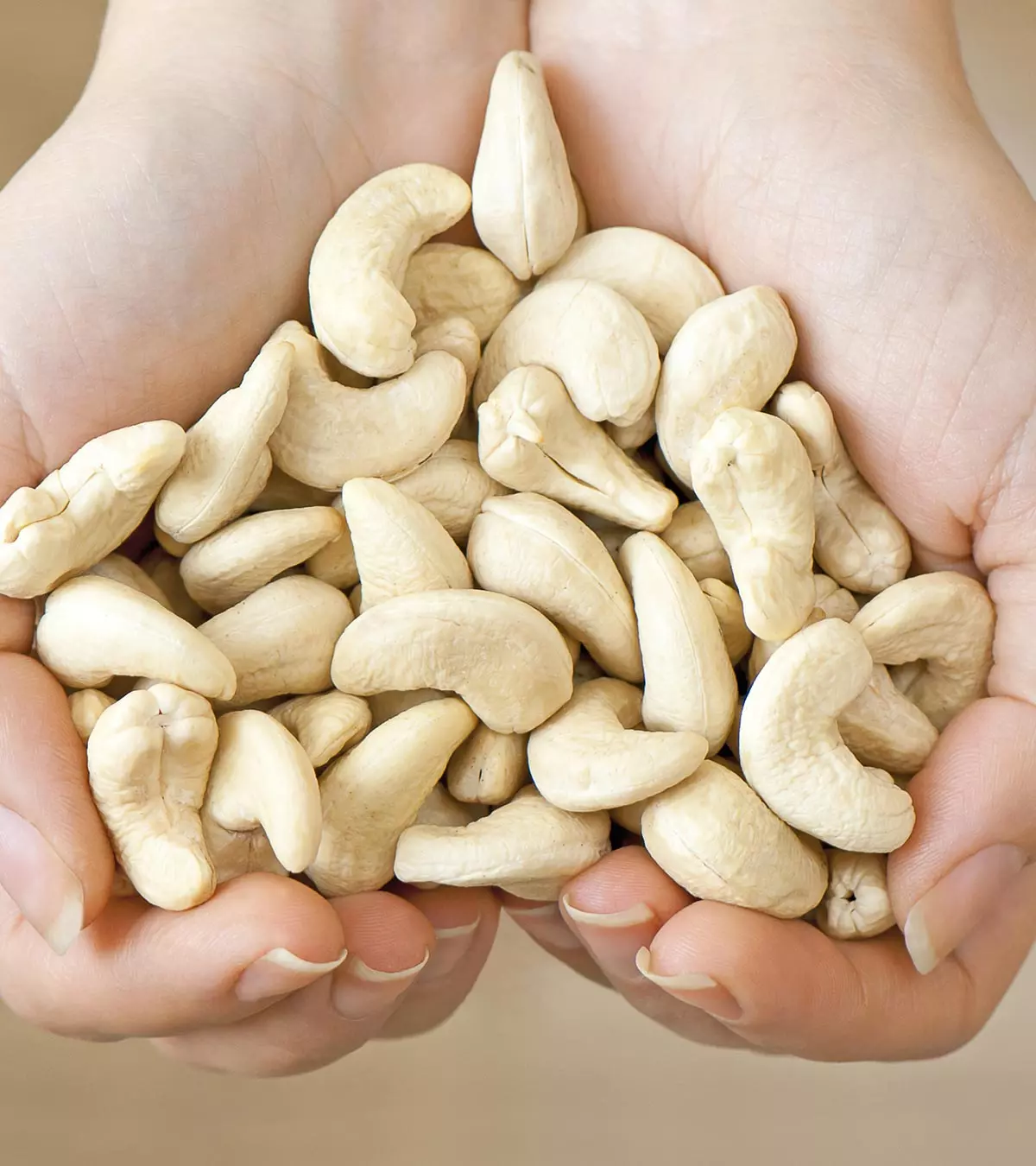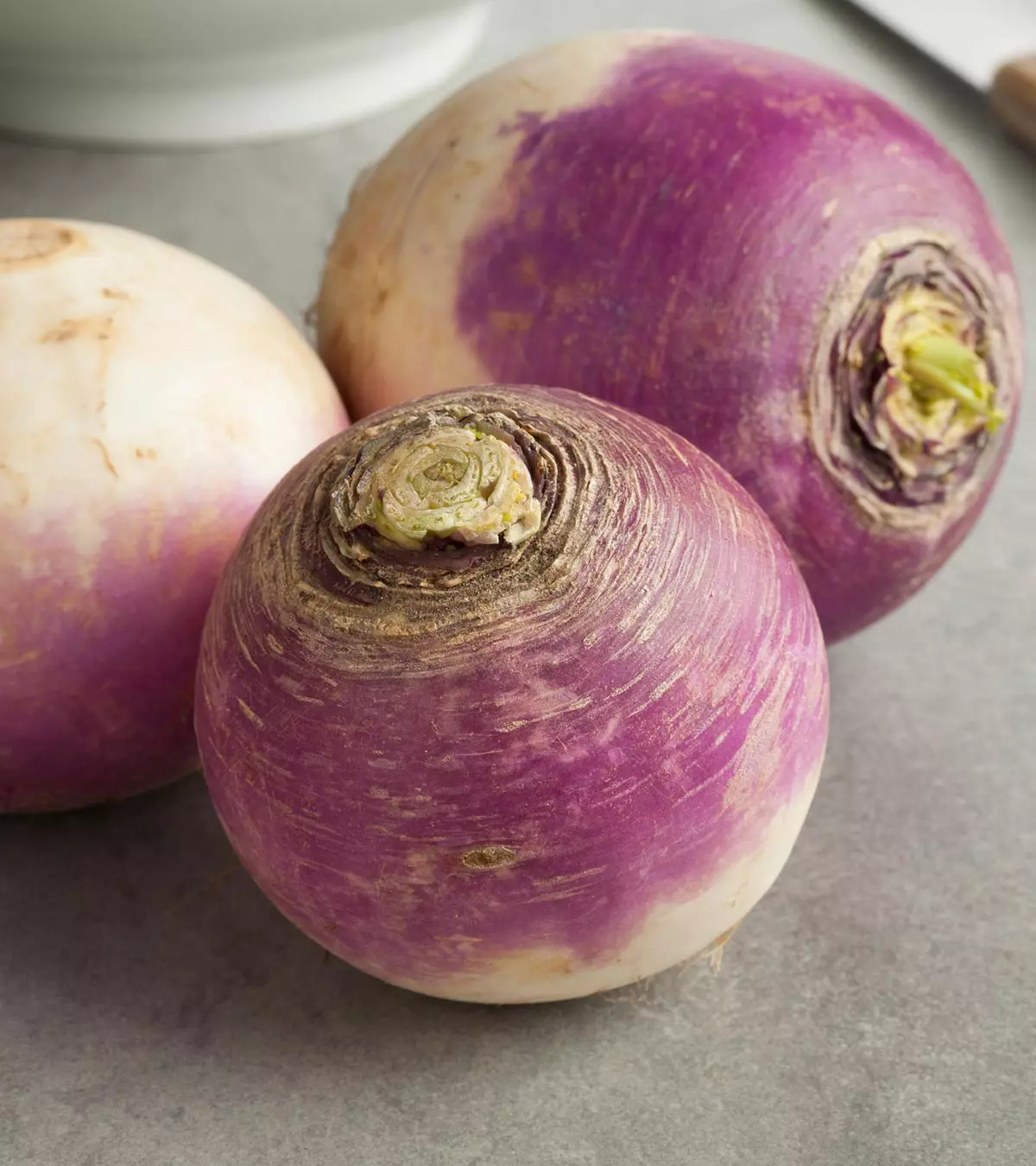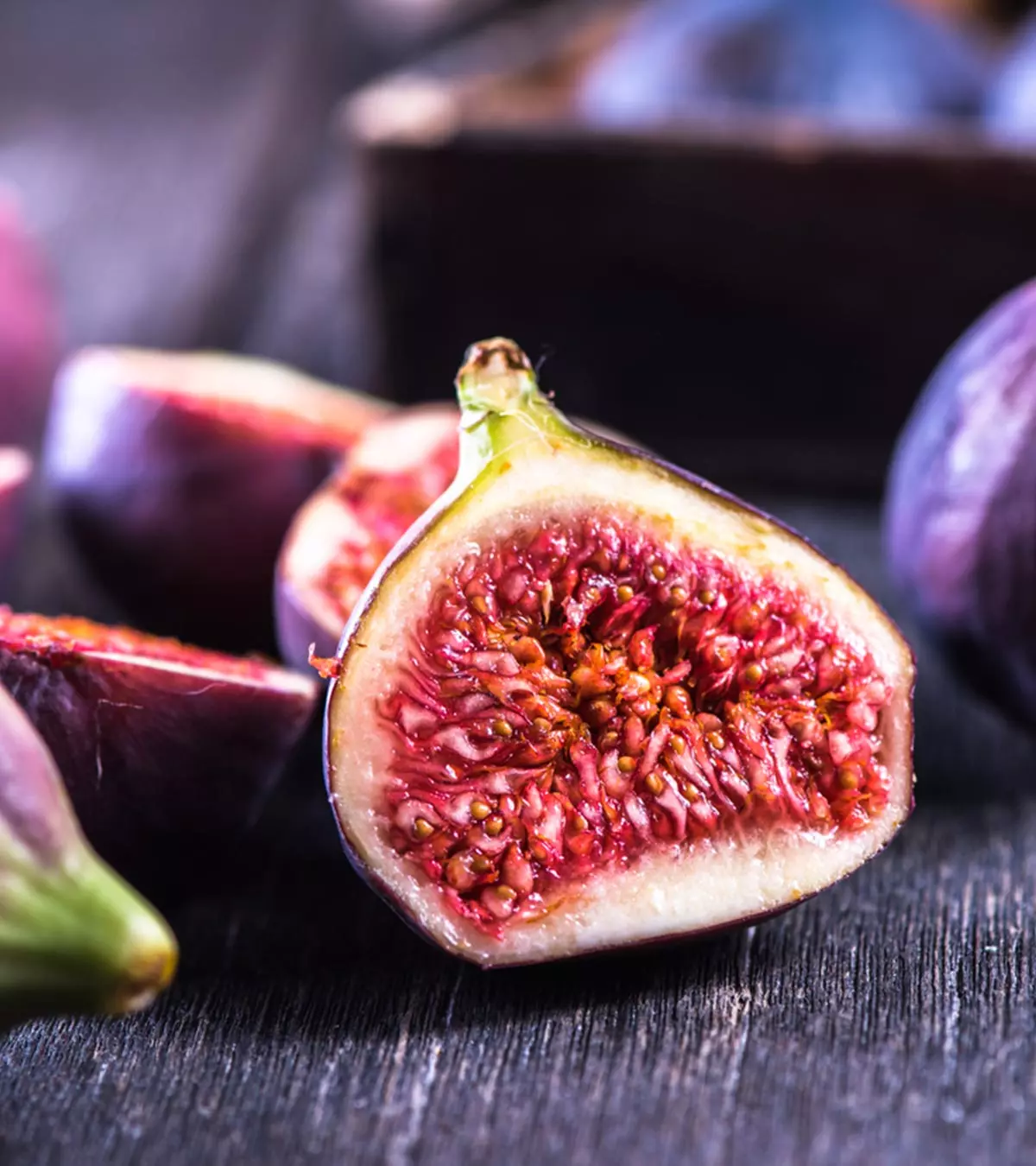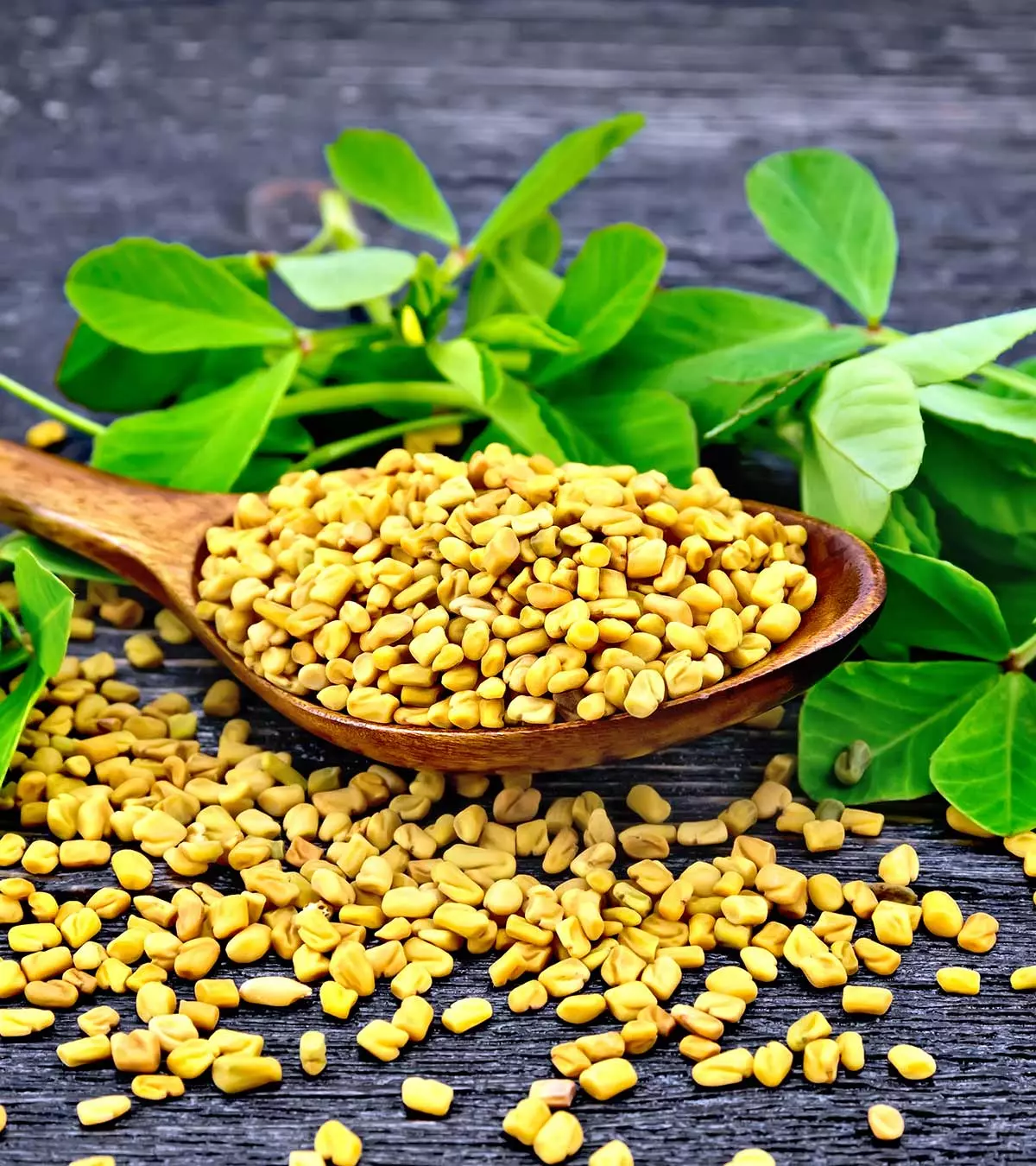
As an expectant mother, you would want more information on the most healthy foods during pregnancy. For instance, you may want to know if it is safe to consume fenugreek during pregnancy. Often, you will be bombarded with myths regarding safe and unsafe foods for pregnant women. You will also receive advice from near and dear ones regarding what to eat or not eat during pregnancy. It is important to research before deciding what to include in your pregnancy diet. Read this post to learn about the safety, benefits, possible side effects, and nutritional value of fenugreek seeds and leaves during pregnancy.
Key Pointers
- Fenugreek may be safe during pregnancy when consumed in limited quantities.
- Fenugreek has several benefits during pregnancy, such as reducing labor pain and increasing lactation.
- Increased consumption of fenugreek seeds during pregnancy may increase the risk of miscarriage, allergies, diarrhea, bloating, and smelly urine.
- While fenugreek seeds can be consumed during pregnancy, it is important to consult your physician for advice on safety concerns.
Is It Safe To Eat Fenugreek (Methi) During Pregnancy?
Fenugreek, also known as methi, is safe for pregnant women only when taken in moderate amounts. Excess consumption of fenugreek and similar spices during pregnancy may lead to early uterine uterine contractionsiTightening and relaxing of muscles in the uterus (1). Also, taking fenugreek before you’re due for delivery can create an unusual maple syrup-like body odor in the newborn. However, it does not show long-term effects (2).
 Did you know?
Did you know?What Are The Possible Side-Effects On The Mother And Baby?
Taking excess amounts of fenugreek can disturb the hormonal balance of the body and have potential risks.
The following are some possible side effects of consuming fenugreek.
- The danger of miscarriage: Consuming fenugreek, especially late in the pregnancy, can show signs and symptoms of contractions. It can, therefore, end in early labor induction and preterm laboriLabor that starts before 37 weeks of pregnancy and also miscarriage in some cases. So, be cautious about fenugreek consumption before 37 weeks of pregnancy (3).
- Indigestion: The digestive system is fragile during pregnancy. So, if you eat fenugreek on a regular basis, it may impact your digestion and also result in nausea or vomiting and acid indigestion. You might also have loose stools, bloating or diarrhea.
- Triggers allergies: Fenugreek causes hypersensitive or allergic reactions during pregnancy. It could, therefore, lead to sensitive responses such as nasal congestion, swelling, coughing and wheezing (4).

Image: Shutterstock
- Smelly urine: Consuming fenugreek, especially in the later stages of pregnancy, is known to result in maple syrup-smelling urine.
- Interacts with drugs: Fenugreek lowers the impacts of medicines that you may use during pregnancy. It especially interferes with blood-thinning medications such as warfarin (5).
It’s important to consult a healthcare provider before consuming fenugreek, especially if you have pre-existing conditions or are taking medications.
 Be watchful
Be watchfulYou may note that these side-effects are due to over-consumption. Fenugreek is not harmful when taken within limits.
Danielle McAvoy, MSPH, RD, a nutrition expert based out of Alexandria, Virginia explains, “While there is no exact amount of fenugreek known to cause a miscarriage, the greatest risk occurs when it is taken as a supplement, which is far more than would be used for normal cooking.”
What Are The Health Benefits Of Fenugreek Seeds During Pregnancy?
You might want to know these:
- Fights gestational diabetes: You are likely to develop gestationaliPeriod between conception and birth diabetes (GDM) if you’ve had a history of diabetes, are obese, and are Asian by ethnicity. Also, the increase in the requirement for insuliniA hormone that regulates blood sugar in the body which occurs due to pregnancy hormones, could lead to insulin resistance, ultimately leading to this condition. Fenugreek is known to lower the chances of GDM as it helps stabilize blood sugar levels (6).
- Boosts lactation: According to research, women who consumed fenugreek in moderate amounts throughout the pregnancy are known to have improved breast milk production postpartumiPeriod after childbirth (7). Fenugreek has been used as a traditional medicine in some regions of the world to increase milk production during lactation (4).
- Eases labor: Most women dread labor pain and for a good reason. Fenugreek tea can help here too! Prolonged labor can take a toll on your body and mind. But consumption of fenugreek is known to induce contractions and ease labor pain (8).

Image: Shutterstock
 Quick fact
Quick fact- Helps with breast enlargement: Sometimes, hormonal fluctuations in pregnancy can lead to disproportionate breast enlargement. Thankfully, fenugreek will encourage the augmentation of the bust. Just steep a few grams of the seeds in water and consume the concoction daily as a herbal supplement (9).
Fenugreek is a common ingredient in several Indian and Middle Eastern dishes, owing to its nutritional value, which we will discuss next.
Nutritional Value Of Fenugreek Seeds
The nutrition present in 100 grams of fenugreek seeds is as follows (10):
| Nutrient | Amount |
|---|---|
| Calories | 323kcal |
| Carbohydrates | 58.35g |
| Protein | 23g |
| Fiber | 24.6g |
| Fat | 6.41g |
| Calcium | 176mg |
| Zinc | 2.5mg |
| Phosphorus | 296mg |
| Manganese | 1.2mg |
| Copper | 1.1mg |
| Folates | 57μg |
| Sodium | 67mg |
| Potassium | 770mg |
| Iron | 33.53mg |
100g is a huge quantity and you may not consume so much even in a week.
How Much Of Fenugreek Is Safe During Pregnancy?
The small amounts of fenugreek used in food preparation are sufficient. However, if you notice any of the side-effects mentioned earlier, stop using the seeds.
When Is The Best Time To Eat Fenugreek In Pregnancy?
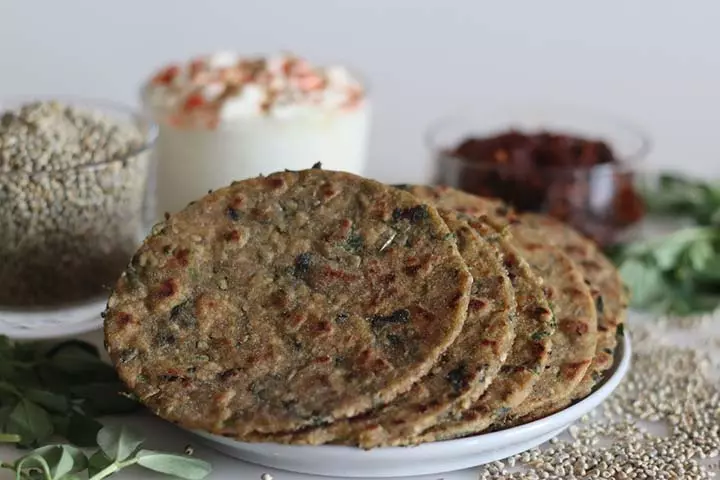
Image: Shutterstock
You can eat fenugreek throughout the pregnancy. But notify your doctor before including it as a regular part of your diet.
Next, we address a few commonly asked questions about eating fenugreek while pregnant.
Frequently Asked Questions
1. Can I eat methi paratha during pregnancy?
Yes, methi paratha is safe to eat as long as there are no side-effects. It depends on how your body takes it.
2. Can I consume fenugreek during early pregnancy?
Yes, fenugreek can be taken in moderate amounts. It is also used in Chinese treatment methods to ease morning sickness.
3. Can I drink fenugreek tea when I’m pregnant?
Yes, it is safe to consume fenugreek tea during pregnancy as it is considered to promote healthy lactation (10).
4. Does fenugreek have any interaction with prenatal vitamins?
There is no scientific evidence that suggests that fenugreek may interact with prenatal vitamins. However, you should be careful if you are on antidiabetic medications, as fenugreek may lower blood glucose levels (12).
5. Can fenugreek cause any hormonal imbalances during pregnancy?
Though fenugreek has not been reported to cause hormonal imbalances during pregnancy, it has been found to increase estradiol (an estrogen hormone) in women (13).
Consuming fenugreek during pregnancy is considered safe and has long been used in Chinese medicine to alleviate morning sickness. It also helps promote healthy lactation, relieve labor pain, fight gestational diabetes, and aid in breast enlargement. However, excessive fenugreek consumption while pregnant has been associated with an increased risk of miscarriage, indigestion, allergies, early uterine contractions, and interaction with drugs. Therefore, keep in mind to take the fenugreek in moderation when pregnant and consult your doctor before adding it into your pregnancy diet.
Infographic: Benefits And Possible Side Effects Of Fenugreek During Pregnancy
Pregnancy is a sensitive time for both the mother and the baby. Thus, a pregnant woman should be extra cautious about what she eats and how it will affect her baby. Despite its known benefits, if you are unsure about the safety of consuming fenugreek during pregnancy, we bring you this list of pros and cons. Check it out and decide accordingly. Illustration: Momjunction Design Team
Illustration: Is It Safe To Eat Fenugreek (Methi) During Pregnancy?
_during_pregnancy_illustration.jpg.webp)
Image: Stable Diffusion/MomJunction Design Team
Discover the benefits of Fenugreek for breastfeeding in this informative video. Learn the recommended duration of use and effective strategies to sustain milk production.
References
- Lisha J. John and Nisha Shantakumari; (2015); Herbal Medicines Use During Pregnancy: A Review From The Middle East.
https://www.ncbi.nlm.nih.gov/pmc/articles/PMC4561638/ - S. H. Korman et al.; (2001); Pseudo-maple syrup urine disease due to maternal prenatal ingestion of fenugreek.
https://pubmed.ncbi.nlm.nih.gov/11532065/ - Susie Kilshaw et al.; (2017); Causal explanations of miscarriage among Qataris.
https://www.ncbi.nlm.nih.gov/pmc/articles/PMC5532791/ - Fenugreek.
https://www.nccih.nih.gov/health/fenugreek - K.J. Malagi and Kamath Madhusudhana; (2015); Significance of herb-drug interactions in clinical practice: a narrative review.
https://impressions.manipal.edu/mjnhs/vol1/iss1/15/ - Ragini Sharma et al.; (2014); Role of garlic and fenugreek during gestation and lactation: a review.
https://www.environmentaljournal.org/4-5/ujert-4-5-5.pdf - Effect of fenugreek on milk production.
https://classic.clinicaltrials.gov/ct2/show/NCT00851591 - N.M.Kor et al.; (2013); Fenugreek (Trigonella foenum-graecum L.) as a valuable medicinal plant.
https://www.semanticscholar.org/paper/Fenugreek-%28Trigonella-foenum-graecum-L.%29-As-a-Plant-Kor-Didarshetaban/af1a3d4653c58ec20aac5705d2c27eb910f5add5?p2df - Felipe Penagos Tabares et al.; (2014); Pharmacological overview of galactogogues.
https://www.ncbi.nlm.nih.gov/pmc/articles/PMC4165197/ - Vidha Ghasemi et al.; (2015); The effect of herbal tea continuing fenugreek seed on the signs of breast milk sufficiency in Iranian girl infants.
https://www.ncbi.nlm.nih.gov/pmc/articles/PMC4585338/ - Herbs and Pregnancy.
https://americanpregnancy.org/healthy-pregnancy/is-it-safe/herbs-and-pregnancy/ - Arpana Gaddam et al.; (2015); Role of Fenugreek in the prevention of type 2 diabetes mellitus in prediabetes.
https://www.ncbi.nlm.nih.gov/pmc/articles/PMC4591578/ - Aman Khanna et al.;(2021); Safety and influence of a novel extract of fenugreek on healthy young women: a randomized double-blinded placebo-controlled study.
https://clinphytoscience.springeropen.com/articles/10.1186/s40816-021-00296-y
Community Experiences
Join the conversation and become a part of our nurturing community! Share your stories, experiences, and insights to connect with fellow parents.
Read full bio of Dr. Girija Wagh
- Danielle McAvoy is a registered dietitian, currently working as the senior manager of nutrition at Territory Foods. She did her graduation in Nutrition Science at Cornell University and post-graduation in Health Communication at Johns Hopkins School of Public Health. With over 11 years of experience, Danielle has been featured as a nutrition expert in media outlets such as Forbes, Women’s Health, and Well + Good.
 Danielle McAvoy is a registered dietitian, currently working as the senior manager of nutrition at Territory Foods. She did her graduation in Nutrition Science at Cornell University and post-graduation in Health Communication at Johns Hopkins School of Public Health. With over 11 years of experience, Danielle has been featured as a nutrition expert in media outlets such as Forbes, Women’s Health, and Well + Good.
Danielle McAvoy is a registered dietitian, currently working as the senior manager of nutrition at Territory Foods. She did her graduation in Nutrition Science at Cornell University and post-graduation in Health Communication at Johns Hopkins School of Public Health. With over 11 years of experience, Danielle has been featured as a nutrition expert in media outlets such as Forbes, Women’s Health, and Well + Good.
Read full bio of Swati Patwal
Read full bio of Rebecca Malachi
Read full bio of Aneesha Amonz






